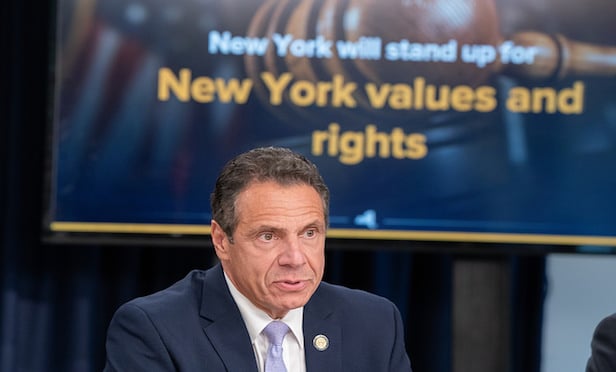WASHINGTON, DC—Last week we caught up with The Real Estate Roundtable's CEO Jeff DeBoer to ask him for his thoughts on Congress' proposal for comprehensive tax reform. Following are more excerpts from his interview.
GlobeSt.com: Let's talk specifics. You have emphasized the need for the tax system to promote capital formation. What are your thoughts on how the Camp proposal deals with the capital gains rate?
DeBoer: While the Camp proposal narrows the tax differential between capital gains and ordinary income, it does not eliminate the capital gains incentive altogether, which we had feared it might. That's important. The draft provides a 40% exclusion of capital gains from income, which results in a top rate of 24.8%, after the new 3.8% net investment income tax is layered on. In comparison, the top tax rate on ordinary income is 35%. Members of Congress recognize that our tradition of encouraging savings and investment and rewarding risk is good for job creation and economic growth and differentiates us from other stagnant, developed economies.
GlobeSt.com: What is your reaction to the Camp carried interest proposal?
DeBoer: Legislation to re-characterize (and thus raise the tax rate on) partnership "carried interest" has surfaced repeatedly in recent years. The Real Estate Roundtable has consistently opposed these proposals. In our industry, carried interest represents an interest in future profits that is paid to the general partner in a venture, often after many years, in exchange for sweat equity and substantial risks taken during development and sale of the project. A recent analysis by the former director of the nonpartisan Congressional Budget Office, Dr. Douglas Holtz-Eakin, found that taxing carried interests at ordinary income rates could raise the tax burden on real estate partnerships by $8.5 billion. Such a proposal would be a job killer. Chairman Camp's carried interest proposal, fortunately, recognizes the risks inherent in real estate investment and seeks to exclude real property trades and businesses from the reach of the carried interest proposal.
GlobeSt.com: What would be the consequences of the Camp proposal to eliminate the deductibility of state and local taxes?
DeBoer: The deductibility of state and local taxes, including property taxes, is a core principle of the federal income tax and has part of the tax code since its inception in 1913. Simply put, people should not have to pay taxes on taxes, which is what happens if you eliminate the state and local tax deduction. People would be paying federal tax on income they never see because it has been claimed already by state and local authorities. We give businesses a tax credit for the foreign taxes they pay to foreign governments, but we allow taxpayers only a deduction (not a credit) for the taxes they pay to state and local governments. Thus, we have already skewed the system in favor of big business and against the domestic worker. There is no good reason to worsen the inequity by repealing the state and local tax deduction (at the same time that we are moving toward a system that exempts income earned outside the United States by large corporations).
Second, the add-back of state and local taxes when computing AMT liability means that the bulk of the tax benefit flows to middle class taxpayers.
Third, the ability to deduct state and local property taxes supports real estate investment and development, a major driver of job growth and an engine of the economic recovery. Of the $465 billion in state and local taxes deducted on individual federal income tax returns in 2011, over $172 billion was attributable to real estate taxes. Although the Camp proposal would preserve the deductibility of state and local taxes paid in the course of a business activity, it would reduce the demand for homes and weaken property values by raising the after-tax cost of homeownership. That would be a huge mistake.
**
Come back tomorrow for the third and last installment when DeBoer talks about the proposed repeal of the like-kind exchange and the changes to the Low Income Housing Tax Credit.
© Touchpoint Markets, All Rights Reserved. Request academic re-use from www.copyright.com. All other uses, submit a request to [email protected]. For more inforrmation visit Asset & Logo Licensing.






